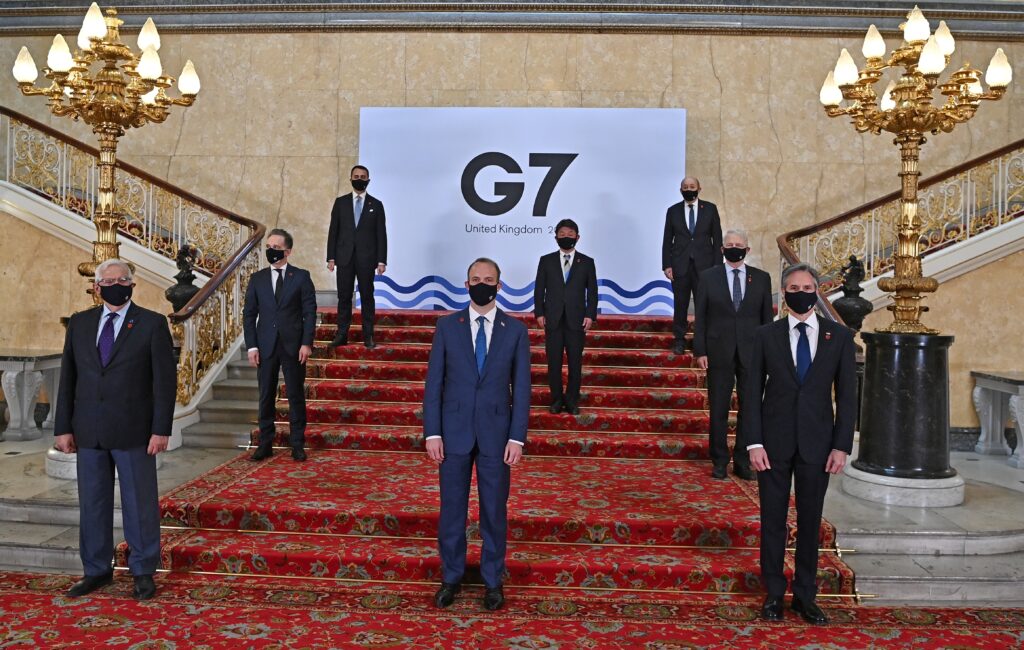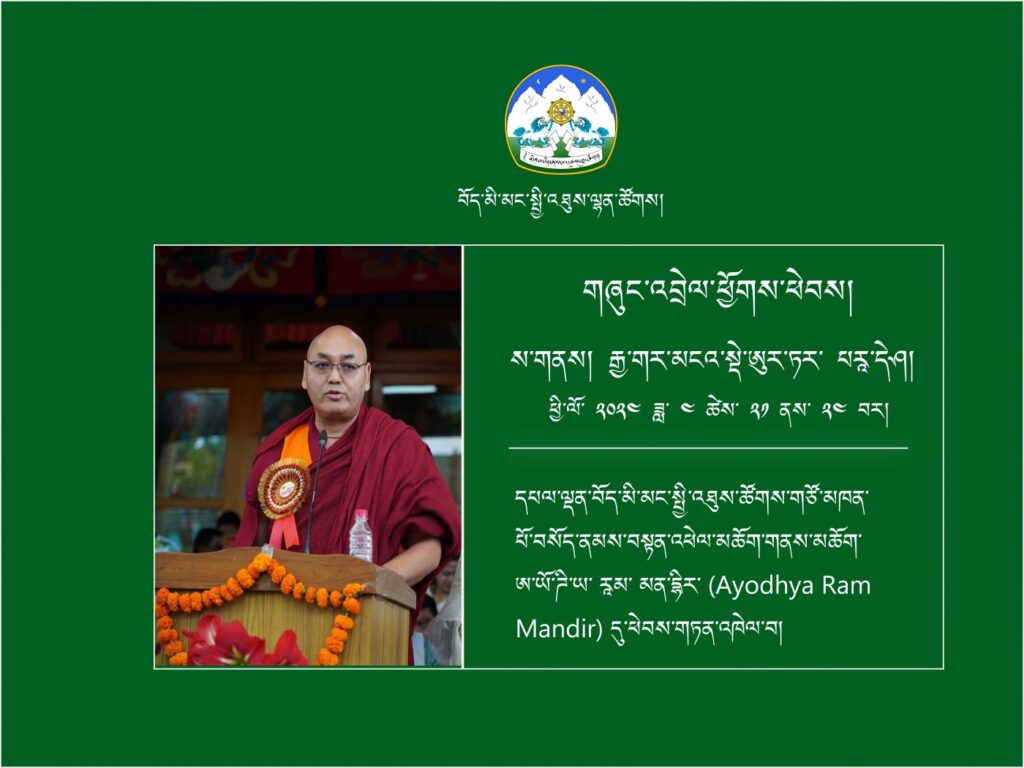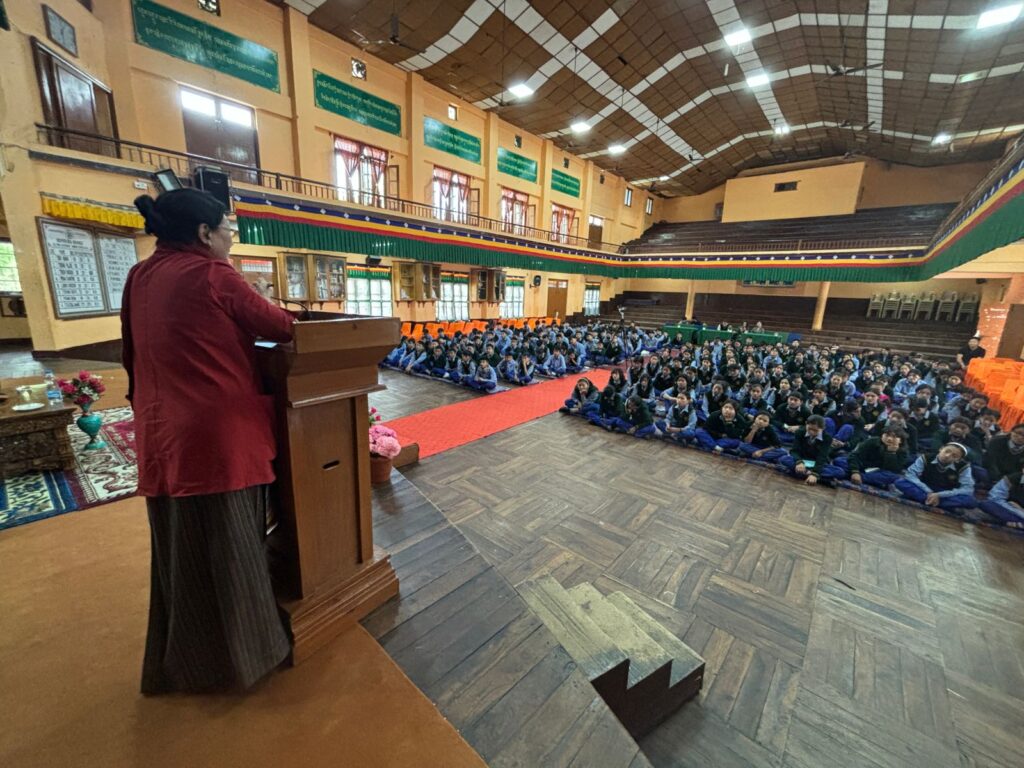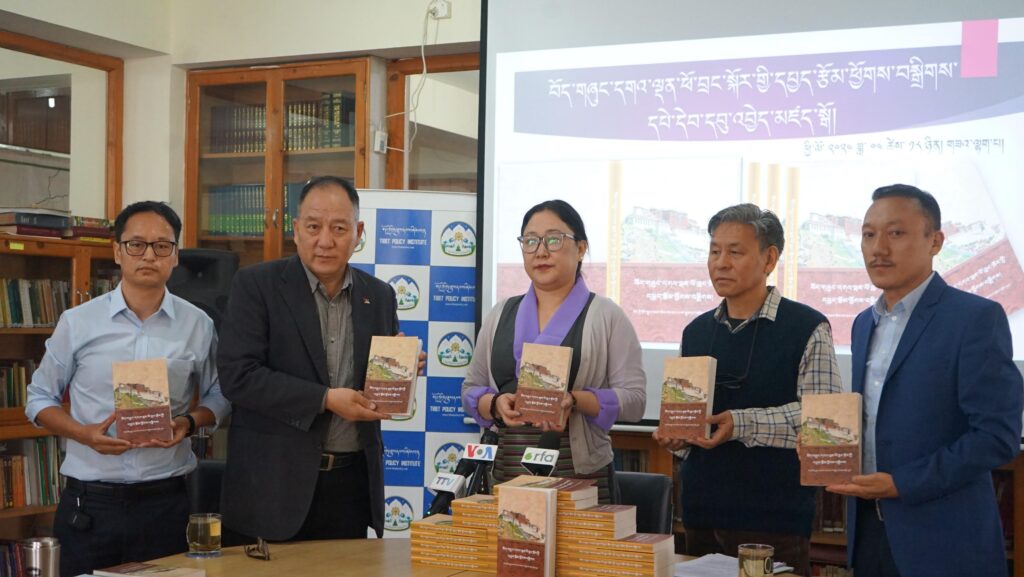
European High Representative of the Union for Foreign Affairs, Josep Borrell, German Foreign Affairs Minister Heiko Maas, Italy’s Foreign Minister Luigi Di Maio, Britain’s Foreign Secretary Dominic Raab, Japan’s Foreign Minister Toshimitsu Motegi, French Foreign Affairs Minister Jean-Yves Le Drian, Canada’s Foreign Affairs Minister Marc Garneau and U.S. Secretary of State Antony Blinken at the start of the G7 foreign ministers meeting in London, Britain 4 May 2021. Ben Stansall/Pool via REUTERS
Dharamshala: In what comes as a significant development on the Tibet issue, Foreign ministers from the G7 group condemned China’s human rights abuses in Tibet in a 12,400-word communique on China. The first in-person G-7 summit hosted by the UK in over two years held between 3-5 May 2021 in London highlighted some critical geopolitical issues concerning China and Russia, global challenges, including the prevailing Covid-19 pandemic and climate change, among others.
This in-person diplomacy was seen as a vital step in consolidating the world’s leading democracies’ approach to tackling global challenges and curating a better world. As the G7 nations discussed wide-ranging global issues from climate change, human rights issues to gender equality, China was the focus of the discussion and not for good reasons.
As part of the Foreign and Security Policy discussion, the G-7 foreign ministers drew attention to China’s human rights abuses in Tibet while raising concerns against the latter’s flouting of international law and violating the human rights of the Uyghurs and Tibetans.
The members urged, “In line with its obligations under international and national law, we call on China to respect human rights and fundamental freedoms. We continue to be deeply concerned about human rights violations and abuses in Xinjiang and in Tibet, especially the targeting of Uyghurs, members of other ethnic and religious minority groups, and the existence of a large-scale network of “political re-education” camps, and reports of forced labour systems and forced sterilisation”.
In addition, the members strongly demanded unfettered and independent access to these places so that the situation could be investigated on a grassroots level.
Tibet’s inclusion in the agenda of high-profile meeting such as the G-7 summit at a time when the repression inside Tibet is at its peak sends a powerful message of hope and justice to the Tibetans inside Tibet and around the world.
Under the new and unprecedented cloud of internet and communication firewall, Tibet has virtually become a black hole for information. News emerging out of Tibet has gone down to a trickle drawing a grim picture of the scale and intensity of both military and digital surveillance in Tibet.
According to the latest Freedom in the World report by Freedom House, Tibet was ranked the number one least free country in the world in 2020, tying the spot with Syria. Tibet has been receiving the worst ranking globally in terms of freedom since 2015.
The condemnation of China’s rights abuses in Tibet by the G7 ministers is a major stride for Tibet issue that draws much-needed global attention to the crisis in Tibet.





